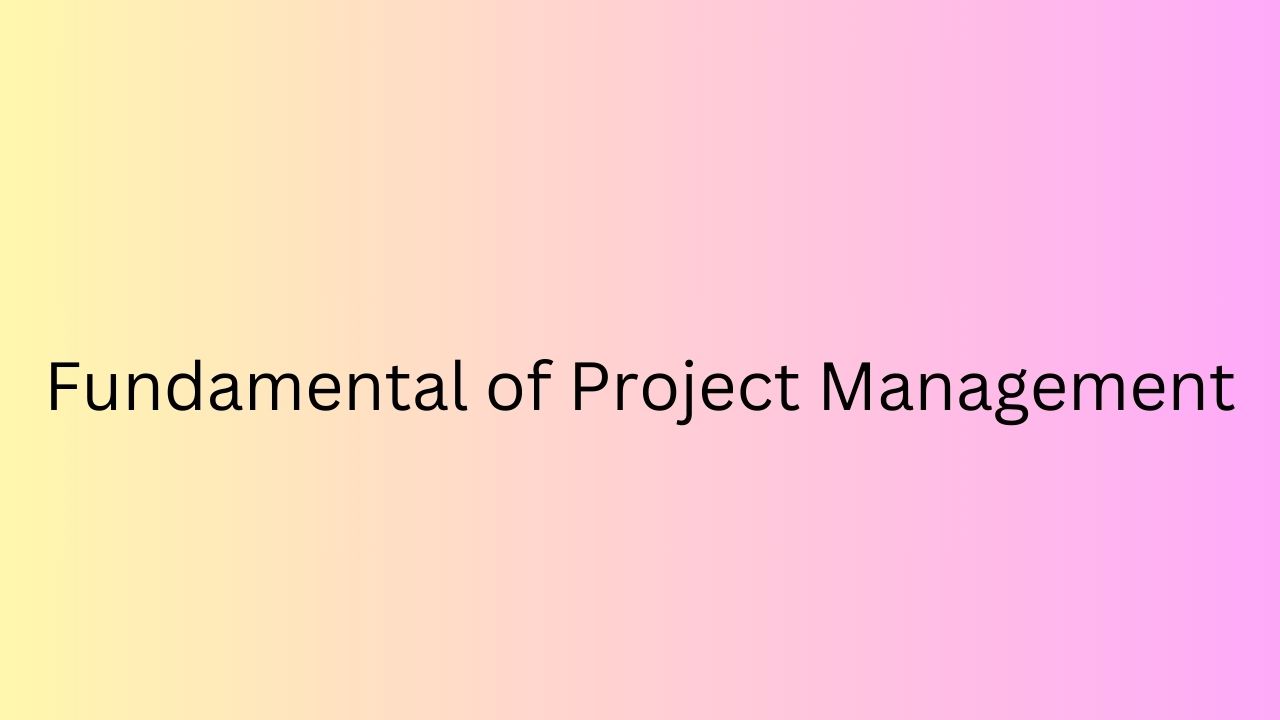
Fundamentals of Project Management#
A high-level Course Outline for a 2 days course on Fundamentals of Project Management is mentioned in Course Outline Section. It is just to assist customers/participants to decide topics, add more topics, remove topics. The final course outline may be different and it depends upon your need, existing project management maturity in place. The purpose of this course is not to teach some more jargon of project management to communicate with stakeholders but to understand why it necessary to have a common vocabulary in place.
This course is based on PMBOK Guide of PMI
Course Objective#
After the completion of the course, the participants would be able to:
- Understand the complete processes of Project Management
- Understand the Project Management Life Cycle
- Learn about managing the key elements of the Project, that includes: Scope, Time, Cost, Quality, HR, Communication, Risks, and Procurement
- Learn about Project Integration Management
Course Takeaway#
- 16 PDU Certificate, which can be used to submit your PMP continue your certification.
- Understand complete project management framework
- Learn 10 Knowledge Areas of a Project from PMBOK
- Learn 5 Process groups of a Project from PMBOK
- Learn key Processes of a Project from PMBOK
- Learn many Tools & Techniques of a Project from PMBOK
- Learn Organizational Process Assets & Enterprise Environmental Factors
- Learn to manage a project from start to end
Audience#
The target audience for the program can be:
- Aspiring/Junior Project Managers
- Team leaders
- Project Leaders
- Technical Leaders
- Project Coordinators
The course is industry generic and professionals from any industry can participate.
Why this Course#
- It helps you in understanding the importance of project management disciple for project success
- Roles & Responsibilities of Project manager
- Understand high-level overview of Project management framework
- Learn many important terms of project management
Prerequisite of this course#
Nothing, but it is good if you should be working in any project and want to apply some of the project management best practices.
Course Outline#
01. Introduction to Project Management
- What is Project & Project Management?
- Why Project management?
- Different characteristics of Project Management
- Project Phases and Project Life Cycle
- Project Stakeholders and Stakeholder Management
- Organizational Influences impacting the Project
- Project triple Constraint description
- Concept of Sub-Project, Phases, Program, Portfolio, and PMO
02. Project Management Processes
- Introduction to PM Processes & Process Group, i.e.:
- Initiation
- Planning
- Execution
- Monitoring & Control
- Closing
03. Project Initiation
- Process of Project Initiation
- Need identification
- Introduction to Business Case
- Calculate profitability using various Benefit Measurement techniques
- Project Charter preparation
04. Project Planning – Scoping & Scheduling
- Scope Planning Process
- Preparation of a Scope Statement
- Creating a Work Breakdown Structure (WBS) preparation and decomposition techniques
- Sequencing of activities by identifying dependencies & creating a Network Diagram
- Estimation – duration, resource & effort
- Arriving to a project schedule using CPM & schedule compression techniques
05. Project Cost Management
- Cost Estimation techniques
- Different types of Cost estimates
- Cost Budgeting process & Preparation of Cost Baseline
- Cash flow reports & S-curve techniques
06. Project Quality Management
- Concepts of Quality Management in Project Management
- Quality Planning techniques
- Quality Assurance & Quality control process
- Application of various Quality Control tools & techniques – Pareto, Fishbone, Control charts, etc.
- Quality Audits process
07. Project HR & Communication Management
- HR Planning & team structures
- Preparing a Staffing management plan
- Role definition and Responsibility Assignment Matrix preparation
- Staff Acquisition Activities, team building
- Conflict resolution techniques, Motivation techniques
- Communication planning & skills
- Collating and distributing information
- Document control relevance & procedures
- Issue management
08. Project Risk Management
- Overview of Project Risks
- Risk Management process
- Information gathering Techniques –Brainstorming, Delphi techniques etc.
- Risk assessment & prioritization
- Risk Response Planning, and contingency planning
- Risk Monitoring & Control
- Risk Reporting
09. Project Procurement Management
- Project Manager’s responsibilities in Procurement
- The Procurement Management Lifecycle
- Source selection process
- Contract administration process
- Contract closure
10. Project Monitoring & Control
- Project Monitoring – its importance
- What to monitor and how
- Progress reporting, Performance reporting, and Status reporting process
- Monitoring & Forecasting technique – EVM
- Project review process
- Taking preventive/corrective actions
- Change management & configuration management process
- Managing changes to the project across all knowledge areas
- Revision of baseline
11. Project Closure
- Project closure process
- Project data archiving
Exercises#
- Define Project Metrics & Success Criteria
- Develop a Project Charter
- Create a WBS


Comments: